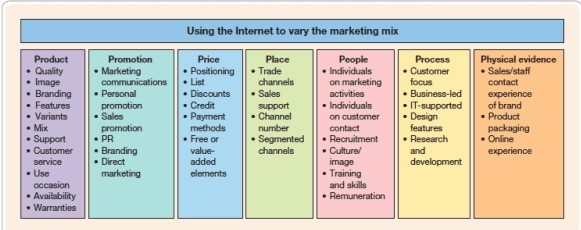Marketing Management Study Notes, Syllabus, Important Topics, Download PDF
By BYJU'S Exam Prep
Updated on: September 11th, 2023

According to Philip Kotler, “Marketing Management is the art and science of choosing target markets and building a profitable relationship with them. Marketing management is a process involving analysis, planning, implementing and control and it covers goods, services, ideas, and the goal is to produce satisfaction to the parties involved”.
Another definition by Philip Kotler is “The Marketing concept is a customer orientation backed by integrated marketing aimed at generating customer satisfaction as the key to satisfying organizational goals”. This topic is a very important topic of BBA & HM Exams.
Major Functions of Marketing Management
- Selling: It is the key to marketing where prospective buyers complete the purchase of an article. And also the process of transfer of ownership of goods to the buyer.
- Buying and Assembling: It contains what you need to buy and it is also necessary to check the quality, how much from whom, when, and at what price. Businessman wants to increase sales and decrease costs. The one who wants to purchase the articles is motivated by quality, service, and price.
-
Transportation: Transportation is the physical technique in that goods are moved from the places of production places to needed places where products will consumption.
- Storage: It consists of holding goods in proper condition from the time they are produced until they are needed by customers or by the production department; storing protects the goods from a slump and assist in carrying over surplus for future consumption or use in production.
- Standardization and Grading: The other activities that ease marketing are standardization and grading. Standardization states the formation of certain standards or specifications for products that builds the intrinsic physical qualities of any commodity.
- Financing: It involves the use of capital to reach the financial needs of agencies dealing with various activities of marketing. The services to provide the credit and money needed, the costs of getting merchandise into the hands of the final user is resorted to as finance function in marketing.
- Risk-Taking: Risk-related due to some unforeseen circumstances in the future. Risk bearing in marketing includes the financial risk interest in the ownership of goods held for an anticipated demand including the possible losses due to a fall in prices and the losses from spoilage, depreciation, obsolescence, fire, and floods, or any other loss that may occur with the passage of time.
- Market Information: It states an electronic document located on the Trading Platform that sets out the commercial details for each Market, including but not limited to: Margin Factors, the minimum, and maximum Quantity, and Our Spread.
| BBA Important Exams | |
| SET BBA | IPMAT |
| GGSIPU CET | JIPMAT |
| DU JAT | UGAT |
| NPAT | NCHMCT JEE |
What are the 7 principles of marketing?
The 7 principles of marketing are also called as seven Ps of marketing and that includes the following:
- Product
- Price
- Promotion
- Place
- People
- Process
- Physical Evidence.
Here’s are the description of the 7 Ps of marketing that can be put into all in your marketing mix:
1. Product: The product is the customer requirement. Whether it’s a CPG product (Consumer Packaged Goods), a luxury item, digital service, or any academic product, it should live up to the expected level of quality.
2. Price: The product should be sold at a price that the target audience deems to be good value-for-money.
3. Place: The product should be available where the customer expects to find it, e.g. in supermarkets, at boutiques, or online.
4. Promotion: The product should be promoted to the appropriate audience via appropriate channels, using advertising methods that resonate with that audience. These channels may include (and are not limited to): branding, advertising, PR, corporate identity, social media, content marketing, etc.
5. People: The team elaborated in the delivery of the project should possess the skills and qualities needed to ensure its success.
6. Processes: The processes jumbled in a product’s delivery will importantly affect the customer’s experience, level of satisfaction, and lifetime value to your business. These processes may contain Website user experience, Delivery time, Delivery methods and service, and Communicating with customer support.
7. Physical evidence: The final P mention the physical context such as receipts, confirmation emails, and PDF invoices that come along with the product.

Download PDF of Marketing Management
===========================
Download the BYJU’S Exam Prep App NOW
The most comprehensive exam prep app.
If you are aiming to crack IPM and other BBA Exam, join BYJU’S Exam Prep Online Classroom Program where you get :
- Live Courses by Top Faculty
- Daily Study Plan
- Comprehensive Study Material
- Latest Pattern Test Series
- Complete Doubt Resolution
- Regular Assessments with Report Card
#DreamStriveSucceed


